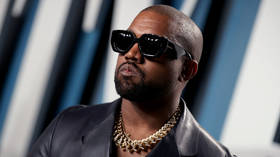Swearing ‘more acceptable’ in UK – expert

The use of swear words has become more widely accepted in modern British society in recent years, due to people finding alternative definitions for language previously considered distasteful, a linguistics expert has said.
The two most commonly used curses in the UK – “f*ck” and “sh*t” – are often used in informal conversations as a point of emphasis or to build social bonds, recent academic research has revealed, rather than solely to cause offense.
“Swearing, as well as all language used, is entirely context-dependent and context-specific,” an English-language lecturer at Birmingham’s Aston University, Dr Robbie Love, says in a Guardian article on Saturday.
“It’s what you do with the word and how the various functions, as far as performed, that informs the perception of how acceptable it is,” he explained.
The academic’s comments follow a BBC Radio segment earlier this week in which presenter Mishal Husain challenged UK Home Secretary James Cleverly over statements he is alleged to have made over UK government policy. In the interview, Husain asked Cleverly if he had, as reported, used words like “batsh*t” to describe the UK’s controversial Rwanda migrant-deportation proposal.
In all, Husain swore seven times in under a minute during the live interview.
According to Love, Husain was “referring to the word that [Cleverly had allegedly] used and [was] asking whether he said it. In that context, I would argue that it’s more likely to be considered acceptable, than if she suddenly said at the end of the story, ‘Well, that was a load of sh*t, wasn’t it?”
His point was echoed by Yehuda Baruch, a management professor at the University of Southampton, who says swearing is prevalent in all walks of society – even among high level professionals, such as doctors and lawyers where it is often used to bolster team cohesion and relieve stress.
“Unfortunately, it is effective,” Baruch says in the Guardian report. “This is the new language and we have to live with it.”
Dr Love, who has published academic studies into swearing trends in informal conversations, and into the use of the word ‘f*ck’ by British teenagers, added that taboos have eroded around the use of many curse words.
Similarly, words or phrases that would have been socially unacceptable a generation ago are now commonplace, Love said, and are now used to form social bonds, or as a means of emphasis or social intimacy.













